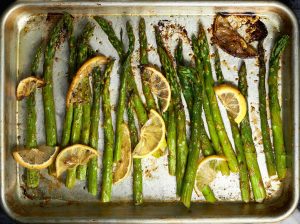Fatigue
When is Stress Actually to Blame?
 I feel like in the 20th century no one was talking about stress as an etiology for disease. Possibly I am guilty of generational egocentricity, having barely reached the drinking age by 2000. Thankfully, I had very few young friends discussing ailments and how they came about.
I feel like in the 20th century no one was talking about stress as an etiology for disease. Possibly I am guilty of generational egocentricity, having barely reached the drinking age by 2000. Thankfully, I had very few young friends discussing ailments and how they came about.
Still, I think it is more referenced, even over-diagnosed nowadays, especially by western doctors any time they cannot explain a symptom or its etiology, shrugging shoulders and throwing their arms up, citing the most probable suspect. “Might just be stress,” they say, which for its listener might feel an implication that their complaint is a fabrication of the mind, if not something that can only be resolved or improved once everything in life is good, or they achieve spiritual enlightenment, neither of which are in the cards for most of us this go around.
While I’m all for patients having agency over their own health, things happen that are out of our control—an accident, post-viral symptoms, genetic predispositions, or just life—when it helps to have a knowledgeable clinician to provide valuable insight and hopefully effective treatment.
In Chinese Medicine stress is said to have a drying effect on the body. This is why when people “stress eat” they crave “damp-causing foods,” such as cheese, bread, and sugar.
Unfortunately, such foods do not generate healthy fluids, nor is stress-induced dryness the kind that will drain pathogenic dampness. Instead, the drying effect of stress refers to the depletion of mucosal organ fluids, beneficial stomach fluids (anyone get acid reflux or diarrhea when over-stressed?), and/or those that lubricate our orifices, gyri and sulci of the brain. Although hydration is advisable, drinking water cannot replace these fluids.
In early stages or mild cases, the best way I know to restore such fluids is through rest, sleep, and the consumption of eggs, bone broths, or red meats. For the rest of us herbal medicine is necessary. Herbs such as ginseng or licorice for the gut, puerariae root for the head and neck, ophiopogonis for the intestines, atractylodes for the intestines, trichosanthis for the orifices, or rehmanniae for the brain and blood. Always consult a (real) herbalist before taking.
Although extensive periods of stress are never helpful, it is important clinically, to thoughtfully discern between when stress is, and when it is not the primary cause of a particular symptom. Almost everyone in modern society has at least moderate degrees of stress, yet everyone is walking around in enormously different stages of health or discomfort.
From our perspective, when stress directly brings up a symptom, it informs us that dryness is probably at its root of imbalance. The body couldn’t tolerate any further depletion of fluids. Then, and only then, is when stress is to blame—not to mention the fact that most disease is multi-factorial. Systemic dryness is likely only part of the picture, which is why many people “do all the right things”—exercise, meditation, good sleep hygiene—but still experience symptoms. Because it is almost never “just stress.”
What Causes Disease? Something New or Something Old?

A common question from health care providers to patients during initial intakes around the inception of their chief complaint is: “Did anything new happen or significantly change in your life just before this started?”
If we are looking at an orthopedic issue this might be in suggestion to some physical trauma or accident. If the issue is more psychological, we’re inquiring clearly more around emotional trauma or incident. Either way, no matter the medical paradigm it is always helpful to know what, if anything, was the final straw, and/or only straw, to induce a present pathology.
Where medicine gets tricky is in approximately half of the times when the patient responds: “Nothing… nothing changed.” Nothing new or bad happened.
In this case it is logical to look at genetic tendencies finally rearing latent heads, but I am more inclined to examine patient habits and lifestyles finally catching up to them. Everyone knows that a few cigarettes, or even a few years of cigarettes, do not cause chronic illness, so why should a short or even medium interim of any harmful pattern under the umbrella of self-care?
How many years does it take for a lack of exercise to cause disease? How many years does it take for nightly desserts, social alcohol use, or haphazard use of pharmaceuticals to?
“The last straw(s)” is an etiology which poses a greater challenge to patients’ self-awareness, curiosity, and/or open-mindedness. Being confronted with what we might have been doing wrong for years, if not decades—where our responsibility lies—poses a threat to our ego, our belief systems, as well as our simple energy in its implicit requisite of critical thought, experimentation, and will power to examine what we could/should change. Nevertheless, scientific logic would dictate this to be at least one irrefutable contributing factor to disease.
When “nothing changed” just prior to onset of symptoms, what percentage of causality can we intelligently assign to genetics alone? Thirty percent? Sixty? Maybe ninety on occasion? I am skeptical it is very often 100%, lest I would personally be relegated to medications for gout disease, eczema, and an anxiety disorder.
I recommend to all patients, myself included, to be open, to the idea that although we probably haven’t been wrong about everything, we are just as likely wrong about some of the things we do, especially whilst in the context of seeking help.
Please don’t get me wrong: As much of a pet peeve it is for me to work with patients who take no responsibility for their conditions and/or wield a particularly narrow-minded arrogance around the infallibility of their choices, it is equally unacceptable when health care providers put the entire onus on the patient. The healing process, in my opinion, is not only a marathon-like process of scientific experimentation, but a team process, that usually requires approximately half of contribution from both parties. I’ve heard many colleagues criticize patients’ desire for us to “fix them.” Obviously, I agree, people must take responsibility for their health. At the same time, most chronic conditions need the outside support and help from professionals as well.
A Healthy Eastern Medicine Breakfast

There is no school of medicine or nutritional paradigm that does not consider breakfast to be “the most important meal of the day.” The reason for this is of course, science: the fact that morning is when our metabolism is strongest and we are most sensitive to our body’s insulin, whose job it is to break down glucose.
Nevertheless, cultural conditionings invariably conflict with scientific evidence, and breakfast remains generally the most neglected. People either don’t eat it at all, cite coffee as “breakfast,” or turn in C- work in the form of the unhealthy toast or bagel, otherwise “healthy” smoothies and yogurt. From a Chinese medical perspective such breakfasts are mostly inadequate in protein or healthy fat, and worse, they’re cold and sweet. As my mentor, Suzanne Robidoux always says: “A smoothie is not a meal.”
Once in a while, such indulgences are okay. But if taken regularly over time the microbiome becomes colder and weaker, and/or encumbered with gluten and sugars. Once this happens it becomes more difficult to digest heartier foods, so when we try introducing them we feel bloated. Instead of nutrients, our food turns to inflammation, our guts get weaker, and so on. This is the vicious cycle that leads people to have little to no appetite in the morning… which is the metabolic equivalent to not feeling tired at night, or not having a libido during the summer. It is an imbalance (of the liver or gallbladder meridians) that must be corrected.
One way to do so is to fake it until you make it. Eat warmer, higher calorie foods for breakfast, but begin with smaller portions, “smaller dosages,” to allow the body to acclimate. In Chinese medicine there are few foods more revered than (organic) eggs. I have no reservation in advising that it is impossible to eat too many eggs—especially of good quality. Start with one egg, ideally cooked a bit runny and over easy, but any way is beneficial (the yolk is thought to nourish our yin and blood, and is used in certain herbal formulas). You may cook with organic butter, avocado or olive oil, and/or dressed with olive oil at the end. Alternately, one can start with roasted vegetables…
“What??? Roasted vegetables for breakfast???” remarks all every American I know.
Yes. I realize this seems very odd in our country, but keep in mind that our country also leads the first world in cancer, autoimmune, and heart disease. Anyone not willing to step outside of the box of our cultural norms, in my opinion, puts themselves at great risk.
Roasting vegetables in the morning is SO EASY. In the winter I’ll throw a bunch of sweet potatoes (another Chinese herbal superfood) or brussels sprouts in the oven—in summer I’ll err more towards asparagus, if not sauteed leafy greens on the stove. Not only is this fast and simple, but also easy to digest, and checks off much of our daily vegetables requirement. My wife and I eat this with eggs literally every single morning, which in my opinion has undoubtedly nourished for our microbiomes a virtuous cycle of having strong morning appetites and putting them to good use by churning through substantial fatty protein. Or in Chinese medical terms, “the qi is strong” with which to start the day.
We’ll never know the diseases we avoid through good habits. We’ll only know those we endure, and quite often we’re left unsure of what caused them. The conditionings of fast-paced capitalism are obviously what has led us to neglect this spectacular source of strength in the day’s first meal. I highly recommend working towards reversing it. As always, acupuncture and herbal medicine can encourage things in the right direction.
To learn more about how the Chinese medical paradigm of self-care can care for you please don’t hesitate to CONTACT US.
The Benefits of Acupuncture for Chronic Fatigue

The Mayo Clinic describes Chronic Fatigue Syndrome (CFS) as a “complicated disorder characterized by extreme fatigue that lasts for at least six months and that can’t be fully explained by an underlying medical condition. The fatigue worsens with physical or mental activity, but doesn’t improve with rest.” It’s estimated that there are more than 200,000 cases of CFS in the U.S. and research has proven that acupuncture, combined with other treatments can help to alleviate the symptoms that come with CFS. continue reading


